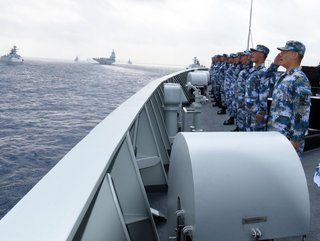US multinationals face 'mountain of risk' over China

Giant multinational companies heavily invested in China are facing mounting stakeholder pressure to rethink their supply chains, reports Bloomberg Law.
Organisations including General Electric, Boeing, Nike, Walt Disney and Starbucks are “wading through a mounting pile of concerns” relating to China, writes Bloomberg reporter Clara Hudson.
She adds that pressure from the US government and investors for businesses with deep China ties to revisit manufacturing and supply chain strategies, amid mounting concern about China’s sabre-rattling military exercises near Taiwan, which it calls ‘Chinese Taipei’.
Yet extricating operations from China is easier said than done, as Apple has discovered.
There is little doubt Apple would love to unwind its relationship with China, whose economy over the past three years has been battered by extreme weather and an epic property slump. Then there are the self-inflicted wounds relating to Covid.
For two years, China was subject to zero-tolerance policies on Covid, that saw manufacturing and port activity paralysed by lockdowns.
The endless lockdowns began to foment civil unrest, and Apple found itself at the centre of this storm when Beijing imposed a seven-day lockdown in Zhengzhou, which is home to the massive iPhone assembly facility run by Foxconn, the Taiwanese multinational electronics contract manufacturer.
And as Hudson writes, there is also the issue of tariffs on Chinese imports, sanctions on Chinese businesses, and a new US human rights law targeting forced labour in China. This relates to China’s treatment of the Uyghur minority, with internment camps and forced labour among the accusations.
Hudson observes that this raft of concerns is happening against a hawkish US political backdrop regarding China, which President Biden sees as an economic and national security threat. The US is also legislating in the hope of incentivising manufacturing to reshore back to the US.
The Bloomberg story details how GE, Boeing, and auto giants General Motors and Ford, are among the companies disclosing in financial filings how US-China frictions pose business risks.
'Mountain of risk' for companies involved with China
“There’s a mountain of risk that continues to get larger,” Lisa Anderson, a supply chain expert at LMA Consulting, told Bloomberg.
There are no quick fixes for the China supply chain issue.
“It’s very challenging because, first of all, supply chains are created over many years,” Carl Valenstein, a partner at global law firm Morgan, Lewis & Bockius told Bloomberg. “People think you can easily change your supply chain. You can’t. It doesn’t happen overnight.”
Hudson reports how companies with significant business tied to China are putting investors on notice about the continued or increasing risks.
She says the US automotive industry, especially, is on alert, writing that Ford’s February filing detailed how “China presents unique risks to US automakers due to the strain in US-China relations, China’s unique regulatory landscape, and the level of integration with key components in our global supply chain.”
GM, she adds, also said in its January annual report that “continued US-China trade tensions” among other factors could impact its business.
Hudson also details how concern from the US intelligence community is another factor in businesses feeling pressured to revisit their China strategies.
She writes that February’s annual threat assessment declared that China’s dominance in the tech, semiconductor, battery, solar panel and pharmaceutical sectors “pose a significant risk to US and Western manufacturing and consumer sectors if the government of China was able to adeptly leverage its dominance for political or economic gain”.






